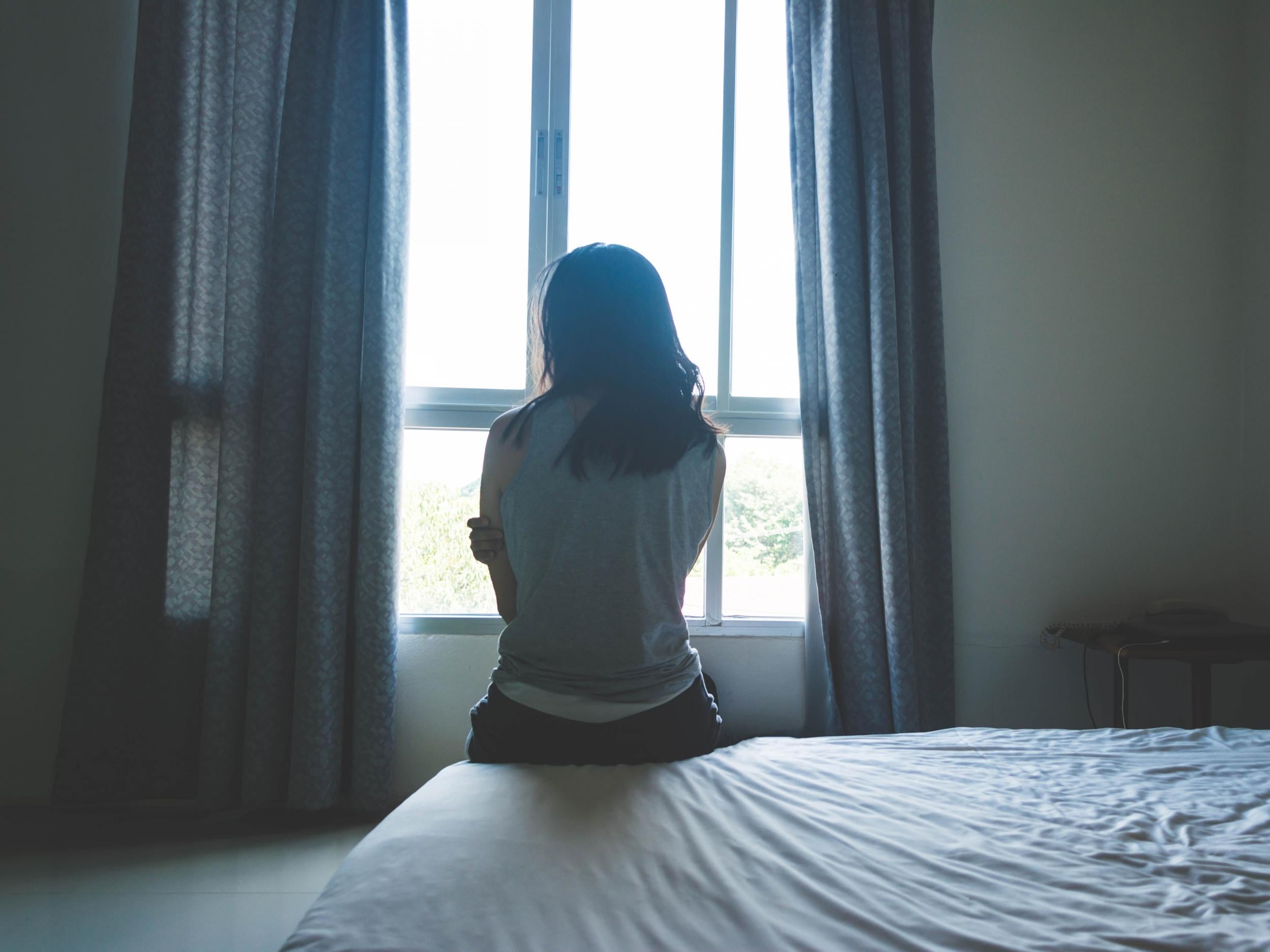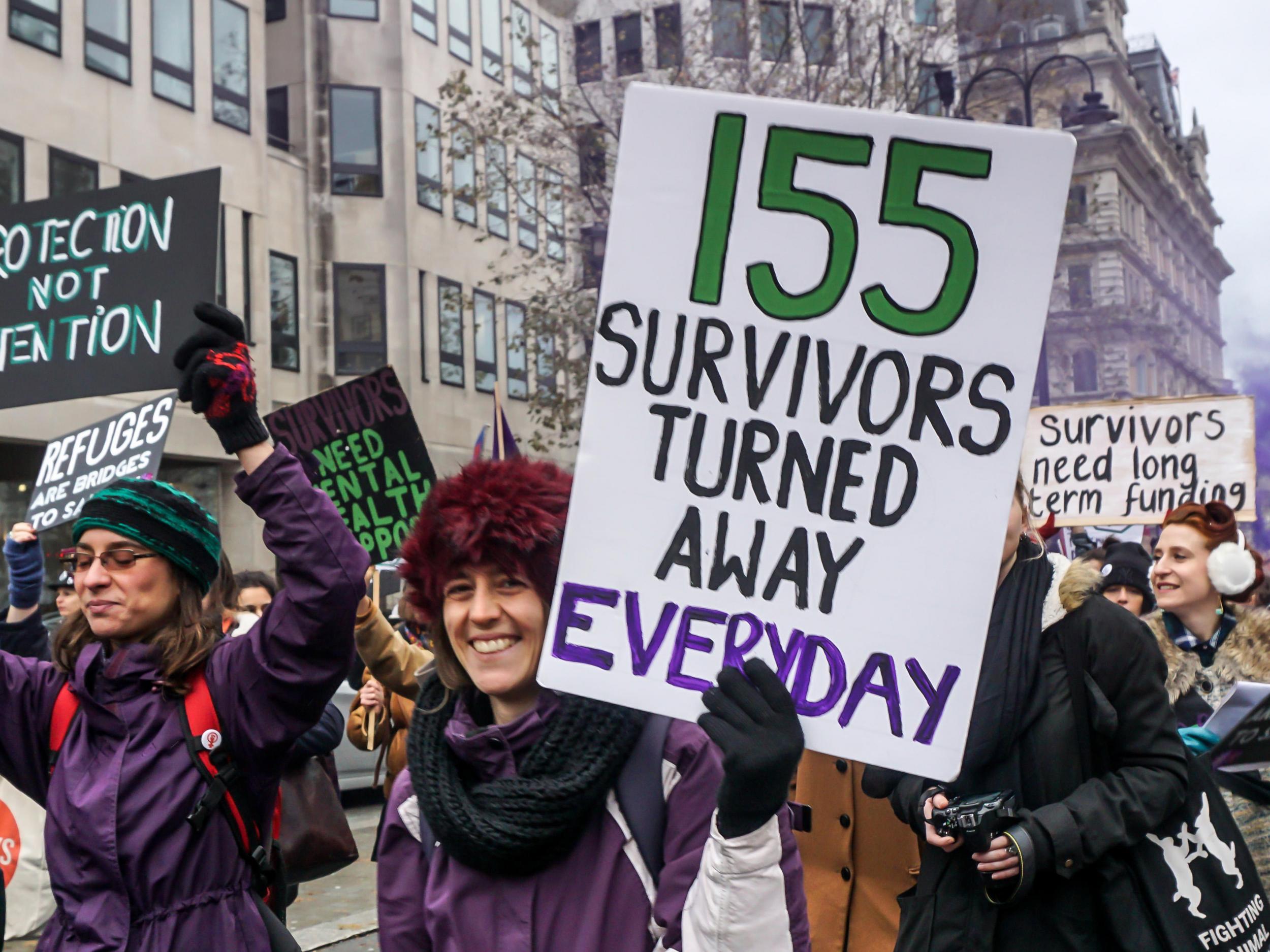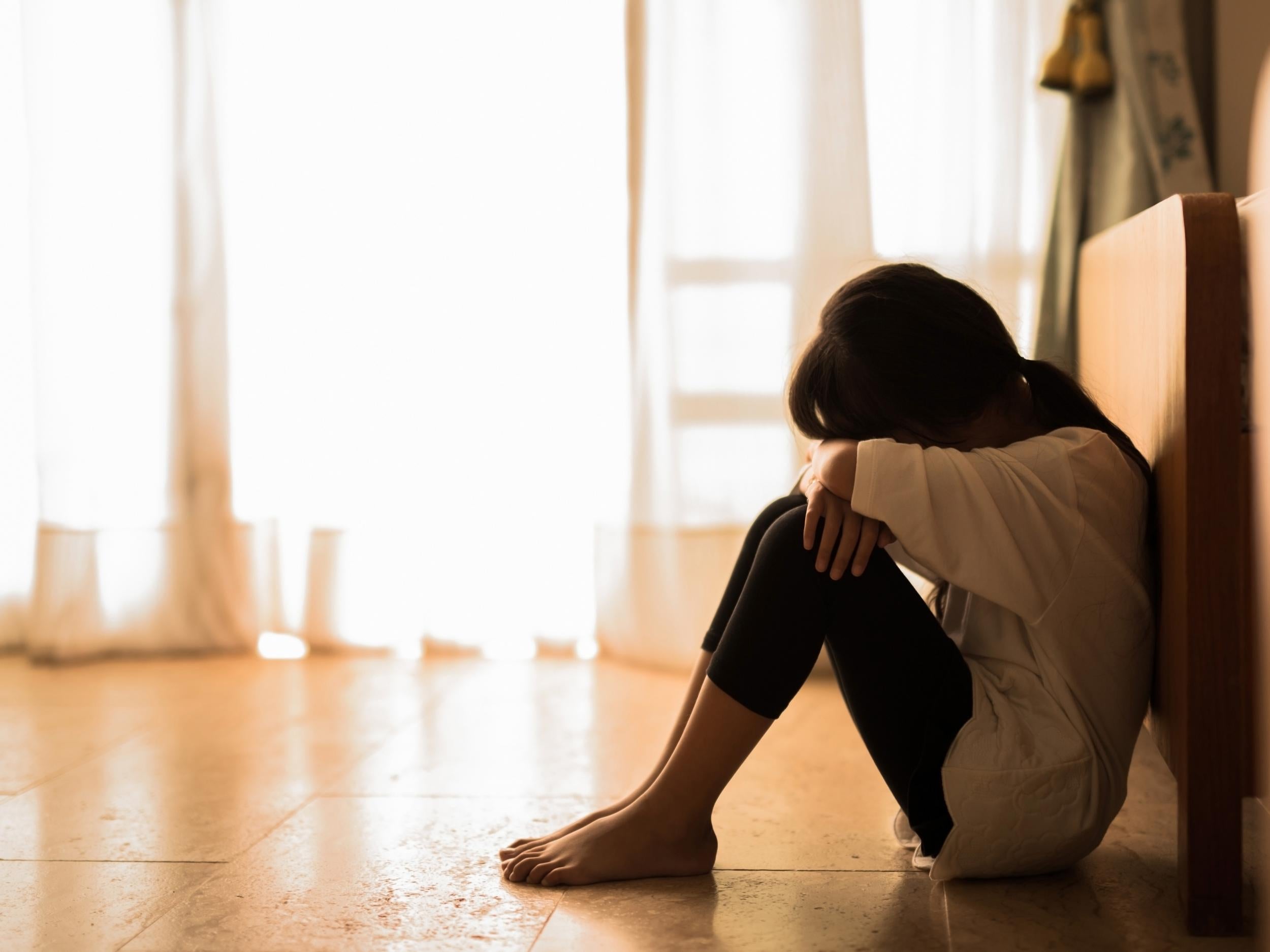Theresa May isn't going far enough to save women's refuges from closure
Lifesaving services across the country are under threat and proposed funding changes could put more women at risk

Your support helps us to tell the story
From reproductive rights to climate change to Big Tech, The Independent is on the ground when the story is developing. Whether it's investigating the financials of Elon Musk's pro-Trump PAC or producing our latest documentary, 'The A Word', which shines a light on the American women fighting for reproductive rights, we know how important it is to parse out the facts from the messaging.
At such a critical moment in US history, we need reporters on the ground. Your donation allows us to keep sending journalists to speak to both sides of the story.
The Independent is trusted by Americans across the entire political spectrum. And unlike many other quality news outlets, we choose not to lock Americans out of our reporting and analysis with paywalls. We believe quality journalism should be available to everyone, paid for by those who can afford it.
Your support makes all the difference.Theresa May recently launched a consultation on the first draft of the government’s new Domestic Abuse Bill.
The bill is law and order focused – promising to crack down on perpetrators with new protection orders, a statutory definition of domestic abuse and a domestic abuse commissioner.
But critics say it fails to go far enough in its commitment to funding lifesaving refuges. Separate plans from the Ministry of Housing, Communities and Local Government (MHCLG) to change the way in which refuges are funded could also threaten existing services.
Work towards crime prevention is vital progress in the fight against domestic abuse, but for the women fleeing violent partners in search of a bed tonight, refuge spaces are desperately important.
After starting a relationship with a man she’d known since childhood, Tina, a forces veteran then aged 36, had just secured her place to study at university when she fell pregnant. It was then that her partner started abusing her financially, psychologically and eventually physically, too. For the next four years, Tina’s live became about survival.
Tina was encouraged by her partner that he would handle finances while she studied. It took her a while to realise she was being abused, but Tina says: “I lived with constant threats, he was always lying to me, always spending money behind my back and putting his own debts into my name.”
After being forced to remortgage her home three times to cover his debts, Tina eventually lost the house that she had bought when she was just 19. Refuge reports that one in five people in the UK have experienced financial abuse in an intimate relationship, with 60 per cent of all cases reported by women.
Soon after losing her home, Tina’s partner then attempted suicide with Tina in the car. After they both survived the U-turn into traffic on an icy road, the physical and sexual abuse worsened – but Tina had nobody to turn to. She explains: “I’ve got no family and my parents disowned me when I was 17. I was destitute, with a three-year-old. I didn’t know what to do.”
During her final exams at university, a friend convinced Tina to call a domestic abuse helpline. But leaving her partner wasn’t simple. Frightened after being scorned for being in a domestically violent relationship with a young child, she put the phone down immediately the first time she called. But she went into a refuge three months later, “because I had nowhere else to turn to”.
Unfortunately, the government’s new funding plans could leave women like Tina without the bed that she desperately needed. Despite the government’s pledge of £20m for domestic abuse services last year, refuges in the UK are on the brink of closure and need long-term financial security – something which is at risk under the MHCLG’s proposed changes to short-term accommodation funding.
Amidst the climate of budget cuts, the picture for domestic violence provision is already bleak. One in six refuges have closed since 2010, while the need for them is increasing. In the year to March 2017, about 1.2 million women in England and Wales experienced domestic abuse.

Reported incidents have risen in the past three years, which Women’s Aid predict is an underestimation, as many women don’t report domestic abuse for safety fears. Still, two women die because of domestic abuse in England and Wales every week.
At present, women can claim housing benefit to fund their stay at a refuge, but proposed changes would replace this guaranteed income with a government-allocated grant for all adult temporary accommodation.
Hard-pressed local authorities, which have seen a national average budget cut of 38 per cent since 2010, will be left to divide scarce resources between vulnerable adults affected by homelessness, poor mental health, addiction and more.
Housing benefit currently makes up 53 per cent of refuge funding and Women’s Aid predicts that more than half will be forced to close if the changes go through.
The fear from refuges and charities is that the current commitment to funding refuge spaces will slip under this new policy.
Tina’s three-year-old daughter received ongoing support from Solace Women’s Aid, even after they left the refuge. She emphasises how vital the therapy was for her child, who wasn’t eating properly as a way of processing the abuse she’d witnessed.
“If you think about it, her life was completely out of control, she went from living this supposed middle class lifestyle in a country market town with a lovely back garden and daddy with a company car, to living in a tiny room in the centre of London.”
For Jennifer Allison, head of services at Women’s Aid Integrated Services in Nottingham, although she welcomes May’s Domestic Abuse Bill, worries about what these potential funding changes could mean for the two refuges she manages.
“We know that our services are constantly in high demand and they are always full; we have to turn away women because there just aren’t enough beds. We work with our helpline, if our beds are full then women will get redirected to other local services. But when I talk to my staff and ask them how bad it is across the county, they often say there is no room at all, which means women are at risk.”
Women’s Aid Integrated Services provides vital specialist help for survivors and their families, with facilities that have managed to house a family of seven as well as older male children who wouldn’t normally be permitted in a traditional refuge.
Its helpline is vital for women in Nottinghamshire who are fleeing a violent partner. On average, women return to their abusive partner seven times: having a place to turn to when they feel safe enough to escape is vital to saving women’s and children’s lives.
Although surviving on just £20 a week for the first 18 months after leaving her partner, the specialist financial support given at the refuge Tina stayed in helped her cope: “They put me in touch with the benefits people and helped me fill out forms. That was accessing my survival, because I wouldn’t have known how to tackle the benefits system without them. They were very keen to get me signed up, which ultimately put me on the road to recovery.”

After being a refuge manager for 20 years, Allison knows all too well what changes to funding allocation could mean for refuges across the country. “I know some councils who have scrapped their refuge services all together. If we have to share from a new ring-fenced grant with other short-term accommodation types, we will be spread very thin.”
On just one day last year, according to a Women’s Aid survey, 94 women and 90 children were turned away from refuges, while 60 per cent of all referrals to refuges in 2016-17 were declined.
Allison is concerned that uncertainty in funding will only worsen these figures. “Refuges make up a tiny part of temporary accommodation services. If one refuge closes, it has a huge knock-on effect for other local refuges. I want to see a ring-fenced fund for domestic violence that is allocated on a longer-term basis, not just year by year. Our MHCLG funding runs out in June and we have no idea how we will be funded in the future, because we haven’t got an update from them and have now had to use funding reserves to keep running.”
Katie Ghose, chief executive of Women’s Aid, told The Independent: “The government’s planned changes to the way that refuges will be funded will be the breaking point. Over two-thirds of women escape to a refuge outside of their local area for fear that they will be hunted down by the perpetrator; while one in 10 of all domestic abuse services currently do not receive any local authority funding.”
“We are calling on the government to give survivors a cast-iron guarantee that their dangerous planned changes to how refuges will be funded are firmly off the table and that refuges will be protected so that every woman and child can safely escape domestic abuse.”
For Tina, staying in a refuge for seven months was key to her survival. Seven years after fleeing her abusive relationship, she now has her own flat provided by a forces veteran charity, is studying a master’s degree and has been head hunted for a job, after finishing her first degree while staying in the refuge.
She also does charity work with Solace Women’s Aid, the organisation that convinced her to find safety through their services. Her 11-year-old daughter is the hockey captain at a top boarding school where she is studying on a scholarship. But other women fleeing domestic abuse may not be so lucky if the MHCLG’s proposed funding changes go ahead.
She explains: “Refuges save lives. You lose a lot of your life to domestic abuse because it’s so damaging, you disconnect from things because you are just trying to survive. But not only do refuges save your life, they help to give you your life back.”
Join our commenting forum
Join thought-provoking conversations, follow other Independent readers and see their replies
Comments